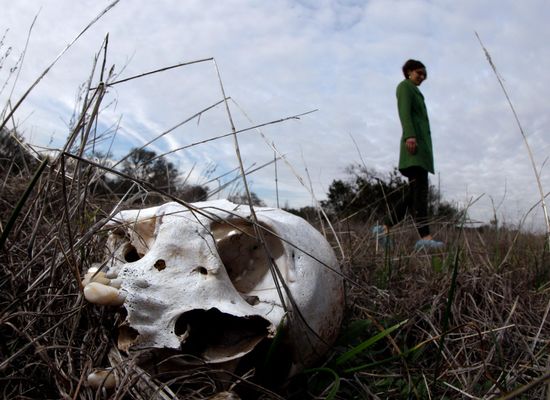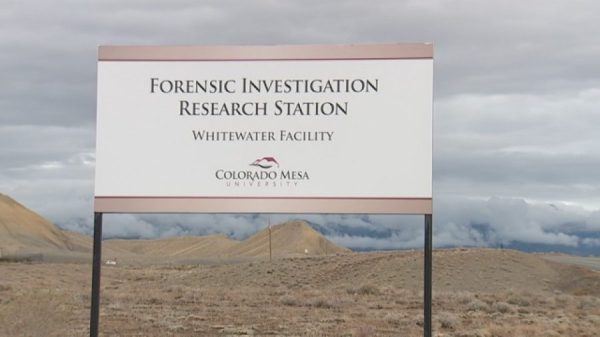
A field of dirt, decomposing corpses, and maggots located in Grand Junction, Colorado has been piquing the interest of researchers for an innovative cause. The Forensic Investigation Research Station at Colorado Mesa University has partnered with medical and forensic specialists from Mexico in a groundbreaking collaboration…this “body farm” was designed to address the fentanyl crisis affecting both the U.S. and its neighbors.
Fentanyl is a synthetic opioid that began surging illegal drug markets in 2013. It’s surprisingly potent, and thus even more surprisingly inexpensive to produce and distribute. Cartels from Mexico often cut other recreational drugs with fentanyl, increasing the strength of cocaine, heroin, methamphetamines, and even marijuana by massive amounts. For reference, fentanyl is 50 times stronger than heroin.
Mexican paramedics and law enforcement officers are witnessing more and more overdose events attributed to fentanyl. Most fentanyl overdoses occur unbeknownst to the victim, who often think they were taking an entirely different substance. Paramedic Gabriel Valladares told BBC News, “We generally see two or three overdoses a night. But [recently,] we’ve had as many as six or seven cases in a single call”. He attributes this uptick to fentanyl. Mexico is also a major transit and production point for these drugs within close proximity to the U.S. Thus, the fentanyl epidemic grips these nations simultaneously.

“For decades, the voracious American appetite for narcotics fueled the rise of vast criminal networks in Mexico, yet drugs were not historically consumed on a large scale in the country,” New York Times writer Natalie Kitroeff reports. “But [fentanyl] use is becoming more common, research shows.” The current president of Mexico, Andrés Manuel López Obrador, has been criticized by Mexican and American specialists alike for his means of handling the fentanyl crisis, often denying and discrediting its significance. “The Mexican Government says that the drug’s spread is contained and that overall consumption remains relatively low”, writes Kitroeff. “In reality, no one knows exactly how common fentanyl use is in Mexico.”
Colorado Mesa University’s “body farm” is a diplomatic effort supported by the U.S. State Department aiming to encourage Mexico’s government to thoroughly address the country’s role in the fentanyl crisis. When the concept of the body farm was originally proposed by CMU criminal science professor Michael Bozeman back in 2010, it had a hard time getting off the ground. Many Grand Junction residents opposed the planned location of this body farm due to its proximity to neighborhoods.
It wasn’t until 2024 that more than a dozen medical specialists from both the U.S. and Mexico traveled to Mesa County to get the vision underway. At the body farm, donated human remains are studied as they undergo the natural decomposition process. This surveying aids in developing forensic investigations to properly address and combat the crisis.

Dr. Manuel Lopez-Santa Cruz is one of the medical examiners from Mexico who embarked on the trip to Grand Junction, and he says he is eager to apply what they learned to their own medical practice upon returning. In a report with The Grand Junction Daily Sentinel, Lopez-Santa Cruz shared, “It’s great that we have the opportunity to come up here and just take a look at that research and all of the investigations and all of the procedures that are being implemented here in the States”. In addition to pursuing cutting-edge techniques to study the effects of fentanyl on the human body, the investigative team had the chance to explore new equipment specifically designed to detect synthetic opioids in the event of an overdose.
The group also plans to visit Keningston, Philadelphia, a hotspot for fentanyl and other synthetic drug-related deaths in recent periods, for further research and even overdose training. The groundbreaking research taking place at CMU’s body farm seems like a baby step in context of the larger issue, however, it’s a baby step in the right direction. The groundbreaking cooperation at this facility has the potential to drastically improve worldwide understanding of this deadly epidemic, and ultimately, to save lives. With continued support and investment in this crucial work, there is hope for a brighter future in the battle against addiction and overdose.






































